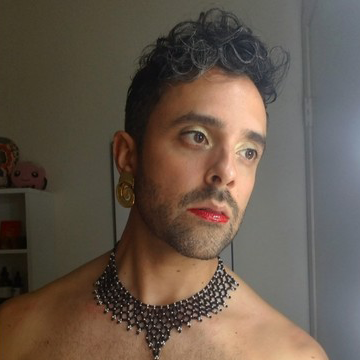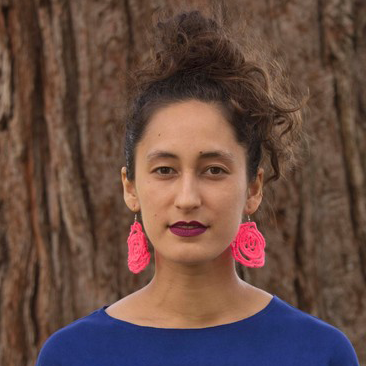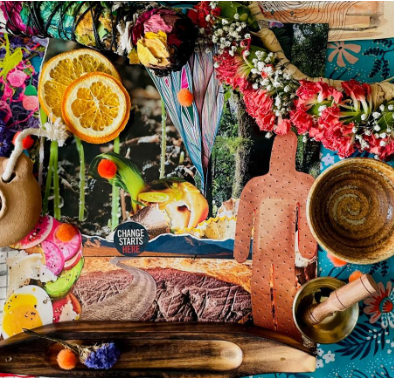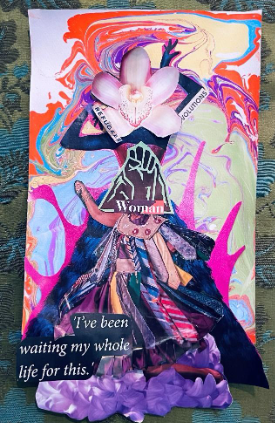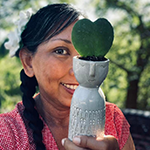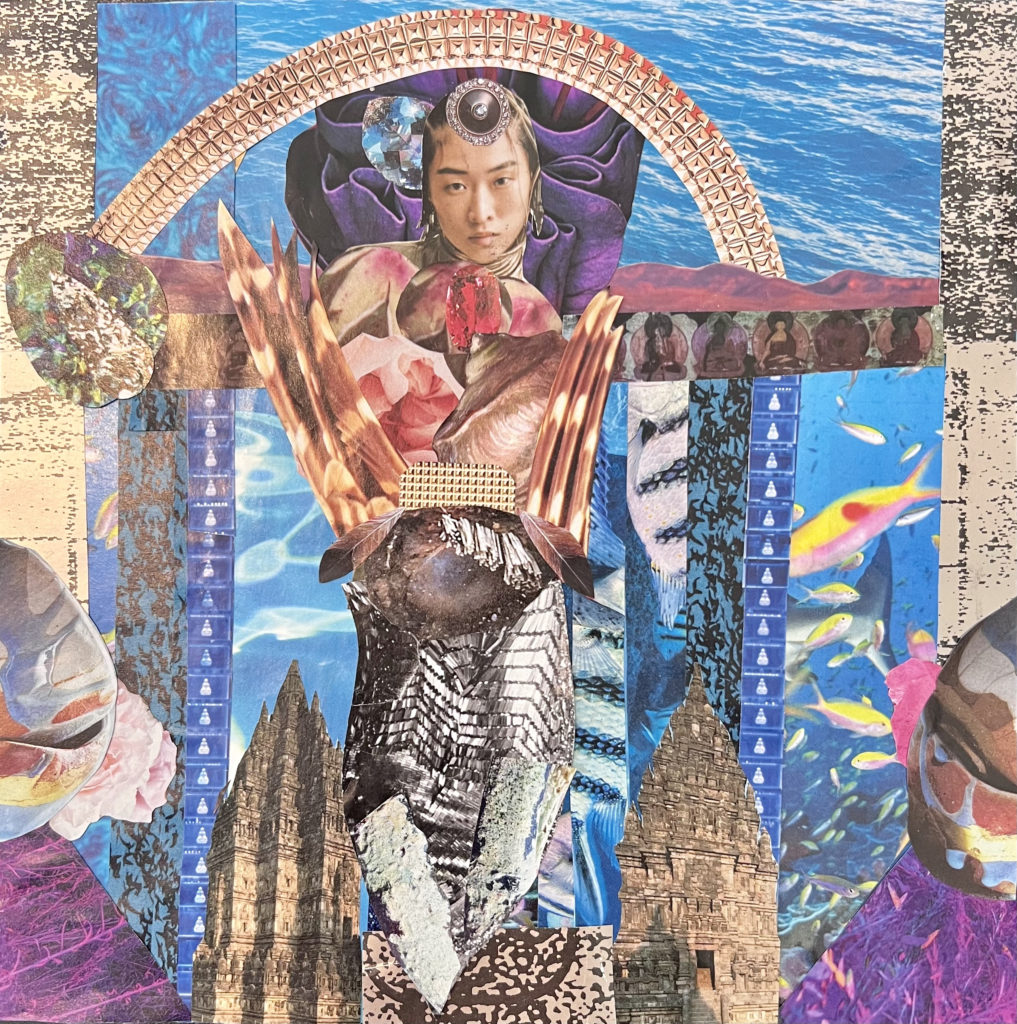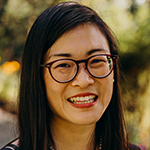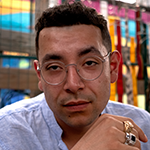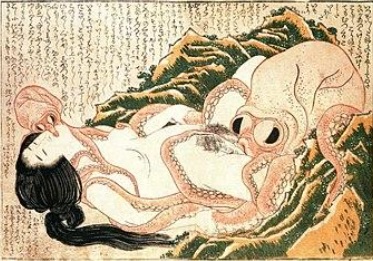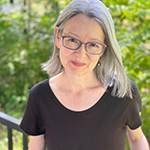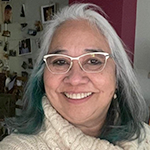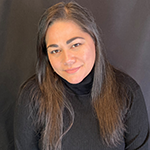Capital of Hope
At the flash of the red light, Baohan cut the engine short, firing the tiny black sports car into the crosswalk.
“Ta ma de,” he sighed, cursing the wait, and let a mouthful of smoke dissolve against the tinted windows. He turned to Yueming in the passenger seat, picking up as if they were mid-conversation.
“And what do you do after you kidnap them?” he asked. “Force them to work in your brothel and wait on you hand and foot?”
Yueming plucked a cigarette from her purse and lit up too. From the backseat, I stole glances at her in the rearview mirror. Her black hair, parted slightly, framed a slim oval face, faint age marks tastefully touched with makeup. She clenched the cigarette with her lips as though she was close to biting clean through.
“I don’t run a brothel,” Yueming said, trying to keep a level tone. She had her arms folded neatly over her pleated pants but wore her distaste clearly on her face.
“Not a traditional brothel,” Baohan countered, “not one of those pleasure dens for men. No, this is different. You find them online, chatrooms mostly, and then—.” He paused and leaned in close to Yueming. His belly butted up against the steering wheel, his gold watch cinched tight against his wrist. “Your friend, he— he doesn’t know yet, does he?”
The end of Yueming’s cigarette smoldered in the mirror.
“Know what?” I asked, guileless, craning my neck from the backseat.
“Poor thing,” Baohan mouthed in between puffs. And then to Yueming: “So when were you going to tell him?”
We arrived at a Thai restaurant in Wangjing. It was late, but on the drive over, I could still make out our surroundings. Identical blocks of red high-rise apartment buildings. Town square obscured by pollution. A hotel that looked like a melting ice cream sundae. Wangjing contained the characters “expectant” and “capital,” and I imagined it meant something superlative, like “capital of hope.”
It was out past the fourth ring road, farther than I’d ever been in Beijing, but that wasn’t too surprising. I was new to the city and, aside from speaking the language, didn’t know a thing.
Yueming was a colleague. We worked together at a poverty alleviation organization that provided microloans to people who lacked access to financial services. Nearly all our clients were women: farmers, small business owners, entrepreneurs. Conventional wisdom went that women were far more credible lenders than men. You couldn’t trust a man not to gamble away any windfall, but a woman would know how to budget, how to make monthly interest payments, how to pull her family out of poverty.
Yueming handled accounts and collections. I wrote press releases in English to attract foreign investment. We sat in neighboring cubicles, and at noon, we joined most of the rest of our colleagues in a series of light exercises meant to aid digestion. After work one day, she invited me out for dinner with Baohan. She described him as an old friend who was in town visiting his family in Beijing.
“A classmate?” I asked.
“Cha bu duo,” she said, and asked me where they could pick me up. Aside from my two roommates from Australia, I barely knew a soul. I figured Yueming must have known this and felt sorry for me—this American far from home—and invited me to come along, too.
When we sat down at the restaurant to order, Yueming announced that she’d recently given up eating sentient beings.
“I’m trying to be a better Buddhist,” she said.
“Do you eat fish?” Baohan asked.
“Didn’t you hear what I just said?”
“Well does your friend eat fish?” That was the way he posed every question to me: “your friend” this or “your friend” that. He never addressed me directly. Yueming nodded, and Baohan called over the waitress.
“And two orders of curry shrimp,” he boomed, his pudgy cheeks curdling to reveal a grin. His gaze settled back on the table. “After all your transgressions, it’ll take more than being a vegetarian to earn your forgiveness.”
At the front of the restaurant was a small stage, and every evening a group of Thai women in silk sarongs danced for the crowd. The music was upbeat, their movements daring and lively, but their faces looked drained of emotion. After the first song, they split up and cased the restaurant, recruiting other women to come up and join them. They spotted Yueming right away.
“I tried to warn her,” Baohan muttered wryly, as the other women guided her up the stairs, though he’d never mentioned a thing. Yueming followed along with the steps, catching herself through the chorus, repeated the movements as best she could. It seemed clear that, had it been up to her, she wouldn’t have been up there. But she also looked like she was trying, that she didn’t want to let the other women down, as if they were the ones who had put her up to this task and she was doing them a favor by seeing it through.
Baohan sat smoking a cigarette, his eyes transfixed on the raised platform. I imagined the managers of the restaurant, the men who paid the dancers’ salaries, pulling up a stool and doing the same. How many women had Baohan brought here just so he could watch them dance?
The waitress brought the dishes to the table all at once: scallops in cream sauce, raw beef and wasabi, tom yum soup, pork fried rice. When Yueming got back to her seat, there was a small mound of vegetables that Baohan had scooped onto her plate, as if he was feeding a teething child. After a few bites, he started up again.
“How much does your friend know about you?” he asked.
“Please,” Yueming said, her eyes staring into the clear broth of her soup.
“Does he know why you invited him here?”
“We’re having dinner and—”
“This is how it starts,” he said, “what she does with every new guy she meets.” He glanced over at me for the first time. I couldn’t tell what he was after, but I saw Yueming’s expression tense. “A woman like that will never get married,” he continued, nearly rising to his feet, “and no man will have her outright, so she—”
“Stop!”
“So she sweettalks them, abducts them into her filthy brothel, and then forces them to fuck her.” He said it with so much conviction that I had no reason to believe it wasn’t true. For a moment everything was still. And then, from his mouth spewed a laugh so deep and odious that it nearly ruptured the table. I looked over at Yueming, her eyes red and puffy, and quieted my dismay in the food.
It wasn’t until later that I learned he and Yueming had met online. They corresponded over email for months before even speaking on the phone. I tried to imagine their first real life encounter: she flying halfway across the country to Fujian to see him, he recognizing her from the dog-eared photo he’d exhausted on all his friends. Three years of nervous anticipation. And then: the disappointment he felt at being turned down, the resentment he’d harbored ever since.
Slowly, Baohan regained his composure. “Does your friend want to go to karaoke?” he asked.
“My friend can do what he wants,” Yueming said, incensed. “I’m going home.”
The car ride back was silent, save for the occasional sound of screeching tires. Now and then, a horn would ring out from behind us as we cut off another driver. I didn’t know whether to will us home faster or hope to burn up in a wreck. We got to Yueming’s apartment first, a tall high-rise on the outskirts of the city and opposite a small playground. Baohan put a hand on her thigh.
“I’m just concerned,” he said in a stern voice. “You have so many men in your life right now, so for your own safety—”
“Keep driving like that and you’ll get in another accident,” she told him before getting out and slamming the door. Only then did it occur to me that this wasn’t the first time Yueming had seen Baohan since meeting him in-person. That, perhaps, she might have had her own reasons for inviting me to dinner. But by then it was too late. It was just Baohan and me, and the car slowly filling with smoke.
Even now, I don’t know why I never said anything. I left the job in microfinance and Beijing not long after that. The premise no longer spoke to me in the same way. How many people were truly breaking the cycle of poverty? And what did that even mean? Many of the same clients kept borrowing for years, and it seemed like a better life was always frustratingly out of reach.
I asked Yueming before I left about the women that she collected loans from.
“How many pay their loans back on time?”
“Nearly all of them.” It seemed impractical to me just how many of their businesses could remain profitable.
“Don’t you ever find that strange?” I asked, but Yueming shook her head.
“They want to believe in change,” she said. “They’ll do whatever it takes. Even if it kills them.”
I wondered how many of those women had to weather bad harvests, or borrow from loan sharks, or had to turn away their husbands when they came home, drunk, asking for money. That they might routinely have to talk down threats or put up with violence. That some knew they would not be better for it. And yet, for weeks and months they would persist, hoping that, this time, it might be different.

Daniel Tam-Claiborne is a multiracial essayist, multimedia producer, and author of the short story collection What Never Leaves. His writing has appeared in Catapult, Literary Hub, Off Assignment, The Rumpus, The Huffington Post, and elsewhere. A 2022 National Endowment for the Arts Literature Fellow, he has also received support from the U.S. Fulbright Program, Kundiman, the New York State Summer Writers Institute, Sewanee Writers’ Conference, and others. Daniel holds degrees from Oberlin College, Yale University, and the MFA Program for Writers at Warren Wilson College, and his debut novel-in-progress, Transplants, was a finalist for the 2023 PEN/Bellwether Prize for Socially Engaged Fiction.

 BACK TO ISSUE
BACK TO ISSUE